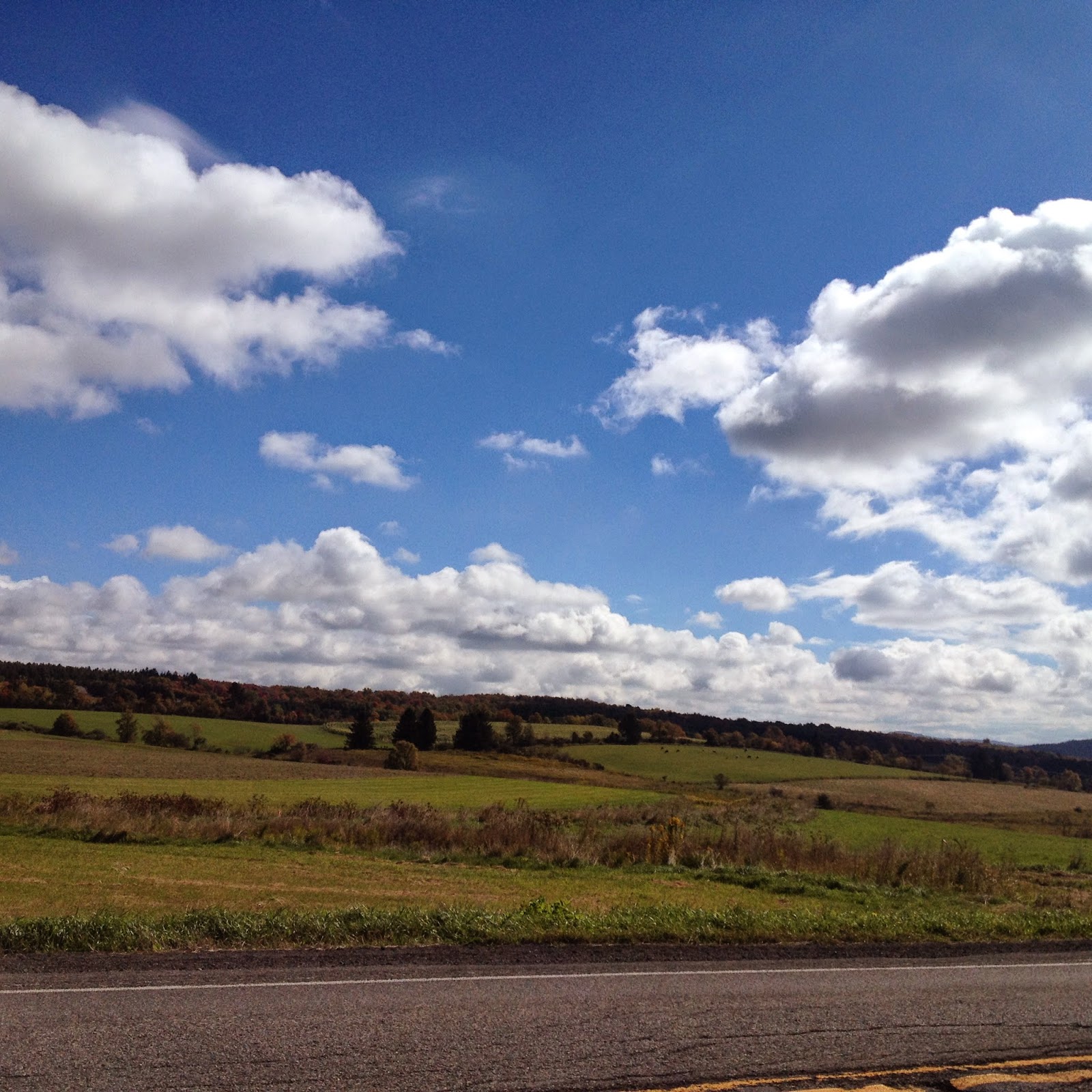Ruminants are not efficient eaters! If you feed a pig some carbs it will put on fat and grow quickly. The same goes for chickens and most other poultry. But beef? They eat and then ferment their foodstuffs and produce all sorts of gas. They take much longer to reach full size. They drink a lot of water and the feeds they eat require irrigation, fertilizer, harvesting, storage and lots of energy! Here is an article explaining the study.
http://www.bbc.com/news/science-environment-28409704 It states beef causes at least 10 times the impact on the environment than other meats. This is not really new news. The question of whether or not to eat meat is one that many people are considering today but it may come to another layer, not whether or not to eat meat but if you decide to eat it, what types have the least impact? This study shows how much less poultry and pork require much less feed and water per pound. They don't require pasture lands and can be raised in a lot of environments.
Here are a few other things to consider. If you don't eat meat, and choose strictly a vegetarian diet what is your impact? Certainly there is a reduction in greenhouse gases and this fact is as an absolute. But how and what are you buying? How far away did your food come from? Its ironic to state you don't eat meat because of the impact on the environment but then buy olive oil imported all the way from Italy, drink wine from Chile or Spain, eat lettuce produced in California in winter, cook with chopped garlic that originated in China. What about the processed foods? Breads, crackers, boxed cereals, all packaged in plastics etc. An example is the super nutritious food, Quinoa. Its attributes are fantastic but it is grown in the high Andes Mountains. How does it get to us? Our food's environmental impact is enormous and meat is a major part of it, but we need to consider many things beyond the farming impacts. We need to consider travel and packaging.
Back to beef....I would like to see a study on the impact of raising beef on pasture compared to grain finished. Beef raised close to the consumer, without the feedlot and the crop impacts that go along with that, in areas that can support pasture raised beef. I'll bet the impact would drop considerably. There are a lot of conflicting papers and articles on this subject. On one hand you have the conventional beef industry claiming grass fed impacts just as much as regular beef because it takes longer for cattle to reach their market weight. This may be true but they are not considering breed and pasture quality. There are breeds that will finish better on grass than others, Red Devon comes to mind. These cattle are smaller which, as a chef , I find appealing. Beef size has gotten huge in the past few years. On the other hand, studies that are designed to refute the pluses from grass feeding also come from the vegetarian side. Grass feeding impacts the planet, that is for sure, but there are different styles of grass feeding. If you finish the animal on stored "grass" which can be a number of feeds and the resulting impact will not be that much different than feedlot beef. If you use this as your model then it won't show a big difference between the two styles. Real pasture raised, where rotational grazing techniques are used, and pasture lands are sequestering a certain amount of carbon must have less of an impact than regular grain finished feed-lot beef. That just seems like common sense.
One way or the other, ruminants are less efficient than other meats. The price of it should reflect that and often does, and therefore the consumers would naturally reduce the consumption. The problem is when we allow cheap meats from Brazil, Mexico or Uruguay that keep our burger prices artificially low and consumption high.
The spin on this subject is well funded and passionate. Fingers are pointed and accusations are made from the vegetarian and conventional beef industry sides....but the impacts are real and consumption is increasing due to the increases in wealth in China. Here is an article that lists the amount of meat waste the world allows...http://www.theguardian.com/lifeandstyle/2014/mar/19/meat-dairy-waste This is a way to reduce the impact also.
